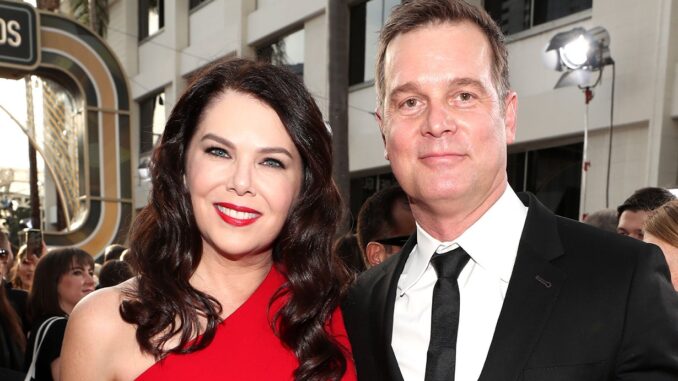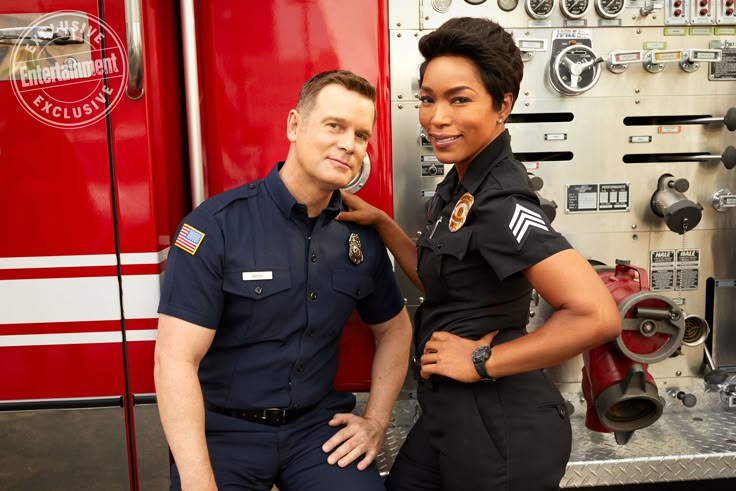
9-1-1 is FOX’s procedural drama, created by Ryan Murphy, Brad Falchuk and Tim Minear, that follows firefighters, paramedics and other emergency personnel at the Los Angeles Fire Department’s fictional Station 118 in Los Angeles, California. Krause has played the role of Captain Robert “Bobby” Nash of Station 118 since the pilot episode debuted in 2018. His character lost his family in a devastating house fire before relocating to the LAFD. A few years later, he married LAPD Sergeant Athena Grant-Nash (Angela Bassett). As of April 2023, the show has not yet been renewed by FOX for a seventh season. The cast of 9-1-1 also includes Angela Basset, Oliver Stark, Aisha Hinds, Jennifer Love Hewitt, Kenneth Choi and more.
In an interview with The Hollywood Reporter in April 2019, Krause talked about why he decided to join the show after spending years building up his characters in Six Feet Under and Parenthood. He revealed that she spoke with the show’s co-creator Ryan Murphy, who helped him make up his mind. “He wanted 9-1-1 to drive, to move and be different from other procedural shows, and have humor and romance, and that’s what you see,” Krause said. “I love the end result on the show. It’s really hard work on 9-1-1, but what we end up with, it’s a superior product.” He also talked about the “emotional weight” of Bobby’s arc that dealt with the loss of his family. “Certainly, I had to do some on Parenthood, but when we go back with Bobby and we see him lose his children and lose his wife, those were difficult scenes to shoot.”
As for Peter Krause’s personal life, he dated his ex-Christine King in the early 2000s, but his most high-profile relationship was with his former costar Lauren Graham (Parenthood and Gilmore Girls). In the ‘90s, the pair appeared in the same sitcom, Caroline in the City, and landed lead roles alongside each other as Adam Braverman and Sarah Braverman on the NBC drama, Parenthood, in 2010. They began dating while they were siblings on Parenthood, and Krause told Kelly Ripa on Live with Kelly and Mark in 2017 that the two “kept things pretty quiet” during the beginning of their relationship.
“We had met on a show called Caroline in the City — a Lea Thompson show back in the day,” explained Krause. “We were guest-starring… She had me move some furniture into her apartment for her back then. She had got some thing. I didn’t catch the signal.” The couple ultimately broke up in the summer of 2021 after 12 years together. Graham opened up about the couple’s split in an interview with People in November 2022. “We had such a good time together that I didn’t maybe ask some fundamental questions about ‘What are your values and what do you envision?’ and those more grown-up things. And then they just caught up with us,” she revealed.
A Story That Resonates with All of Us
Have you ever found yourself loving someone so deeply, even when everything around you changed? That’s exactly what Peter Krause’s ex-partner is sharing in her heartfelt statement, “I’ve never been a mom, but I have loved a child.” It’s a line that drips with emotional gravity—and today, we’re going to unpack every layer.
When Love Outlives the Label
Redefining Parenthood Through Emotion
Who says being a parent requires biology? Love writes its own rules.
-
She may never have carried the child, yet her love has left indelible marks.
-
It’s a powerful reminder that parenthood can be emotional, not just genetic.
What It Means to Miss Someone You Love Deeply
Ever missed someone so much your chest aches? She’s in that place now—feeling a love so fierce, it’s uncomfortable.
Breaking Down “I’ve Never Been a Mom, But I Have Loved a Child”
Why This Statement Is So Poignant
-
Honesty in Vulnerability — There’s humility and rawness in admitting, “I’ve never been a mom.”
-
Unconditional Affection — It confirms love transcends role definitions.
Emotional Layers at Play
-
Yearning — She misses a bond that probably shaped her life in ways she didn’t foresee.
-
Identity — She navigates a gray zone of not being a “mom,” yet feeling motherly.
-
Conflicted Grief — A blend of loss, longing, and redefined identity.
How Society Sees (and Often Misunderstands) Emotional Bonds
The Biology Trap
Society tends to underplay emotional ties if there’s no biological link.
-
We confuse being a mom with carrying the child.
-
But what if love—pure, consistent love—is the truest measure of motherhood?
What It Means for Blended Families
Isn’t it wild how non-biological love often holds just as much weight?
-
Step-parents, guardians, ex-partners—they can shape a child’s world profoundly.
-
Their love deserves respect and acknowledgment.
The Breakup, the Son, and the Aftermath
Navigating Post-Breakup Realities
Breakups are messy enough—now add a child into the emotional equation. She’s dealing with letting go while still carrying love.
Co-Parenting vs. Emotional Co-Endurance
-
Legal Side — Visitation schedules, custody—maybe not hers to enforce, but still emotionally present.
-
Emotional Side — Carrying a piece of someone who’s part of you, even if titles shift.
Why Her Words Ring True for Many (Maybe Even You)
Because Love Isn’t Equal to Labels
Ever loved someone so much that when things ended, you felt untethered? That’s what she’s going through. It’s not uncommon—and perhaps that’s why this resonates.
Reflecting on Your Own Unlabeled Love
Think of someone you cared for, deeply—but never got to claim any title. Feels familiar? Exactly.
The Healing Journey: Moving Forward with Compassion
Honoring the Connection, Even Without Ownership
You don’t have to label your love to validate its truth.
-
She loved a child in ways that matter—remember that.
-
Self-compassion: recognize that your emotional bonds are valid, even if circumstances change.
Strategies for Emotional Well-Being
-
Allow the Grief — Missing someone is okay; even if it doesn’t fit neat social definitions.
-
Create New Rituals — A letter, a small gesture—a way to symbolically say, “I care.”
-
Seek Support — Friends, therapy, journaling—whatever helps you process the stirrings of your heart.
Unlocking the Power of Empathy in Everyday Relationships
The Importance of Validating Nontraditional Bonds
When we say, “You matter,” even without role labels, it builds stronger connections.
-
Recognizing emotional bonds—even informal ones—is an act of humanity.
What We Can Learn from Her Statement
-
Speak your truth, even if it’s messy.
-
Celebrate the love, no matter how it’s defined.
-
Hold compassion, for yourself and others navigating nontraditional bonds.

Final Thoughts – Why This Story Touches a Chord
We’ve All Been There (Or Might Be)
Whether it’s a friend, a partner, or someone you loved silently—many of us know what unexpected, unlabeled love feels like.
Celebrating Emotion, Not Just Titles
Her words remind us that being real, open, and heartfelt matters more than any social checklist.
Conclusion
Here’s the thing: labels are helpful, but they’re not everything. When Peter Krause’s ex says, “I’ve never been a mom, but I have loved a child,” she’s inviting us to see the power of emotional connections—the ones without tidy definitions. It’s an honest, raw reminder that love stretches beyond roles, beyond ownership, and sometimes right into healing. If you’ve ever loved without owning that love—this is your mirror. Honor it. Grieve it. Let it remind you that love, in all its forms, is valid, strong, and beautiful.